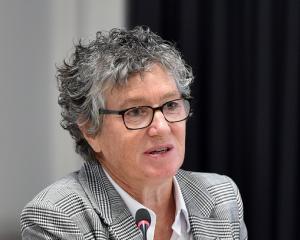
As an undergraduate student in Texas, Prof Rhonda Rosengren worked in a university animal laboratory, and spent her time cleaning out baboon cages and travelling to remote pounds to collect stray dogs for scientific research purposes.
''Driving around Texas picking up emaciated dogs from run-down pounds was a horrible job, but someone had to do it. And it's a huge problem - these pounds don't have the facilities to humanely put down animals. So will we let them suffer or will we give their life a purpose?'' said Prof Rosengren, who is head of the pharmacology and toxicology department at the University of Otago.
Prof Rosengren, who is testing drugs to treat breast cancer, was adamant she would not have been able to conduct her work and test new medicines without experimenting on animals - in her case mice and rats. Testing on animals was the crucial step between experimenting in a petri dish and developing a new drug for humans, she said.
''I am against bad research.''
''And I am strongly against bad research with animals. People want to debate numbers and say 'oh this number is too high'. But it is not about numbers; it is about how you design your experiment.
''To work with animals you have to minimise harm to them, manage their pain and ensure an outcome will be reached at the conclusion of your work. If you can't ensure those factors you will not be approved by the Animal Ethics Committee to experiment on animals. They are very, very tough.''
According to the National Animal Ethics Advisory Committee's 2013 annual report, 224,048 animals were reported as ''manipulated in research, testing and teaching'' in 2013, a drop of 25.9% since 2012, and the lowest recorded number since 1997.

''I think everyone involved in using animals in research, or opposing animals in research, agrees that it is not a morally neutral thing to use animals,'' he said.
''But I don't think it is reasonable to oppose all animal research. Some animal research is beneficial to animals. And some animal research is observational and very low impact.''
Globally, animal research was moving away from testing on highly evolved animals such as primates, Dr King said.
Scientists often found themselves in an ''odd'' position caring for research animals ''like pets'' but then doing things to them that ''may be harmful or kill them''.
''That is a difficult head space for those of us who aren't in science to understand.''
When it was revealed two weeks ago that Otago scientists had been conducting experiments on pigs by shooting them in the head to study blood splatter, there was an outcry in New Zealand.
Dr King has looked into the numbers of pig deaths in New Zealand and said the number used for scientific purposes was ''tiny'' compared with the number killed for their meat.
The latest available data from the Ministry for Primary Industries shows that from October 2008 to September 2009, 689,000 pigs were killed for meat production in New Zealand. Dr King said in the same year only 995 pigs were used for scientific purposes.
''When I heard about the pig experiment I didn't share the outrage that the people protesting it felt,'' Dr King said.
''Clearly it looks terrible when you see photos of a pig being shot in the head, but then if you look closely you see it was an anaesthetised pig.
''It was obtained from a butcher and rendered unconscious in an experimental setting, so that is a better way to die than the more than 600,000 going to slaughter, which wouldn't have experienced as refined a process as that,'' he said.
''There are humane ways you can kill an animal and if you haven't done that, you're done. Your study is done - it won't see the light of day,'' Prof Rosengren said.
- by Eleanor Ainge Roy












